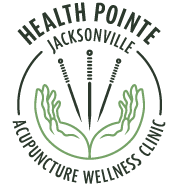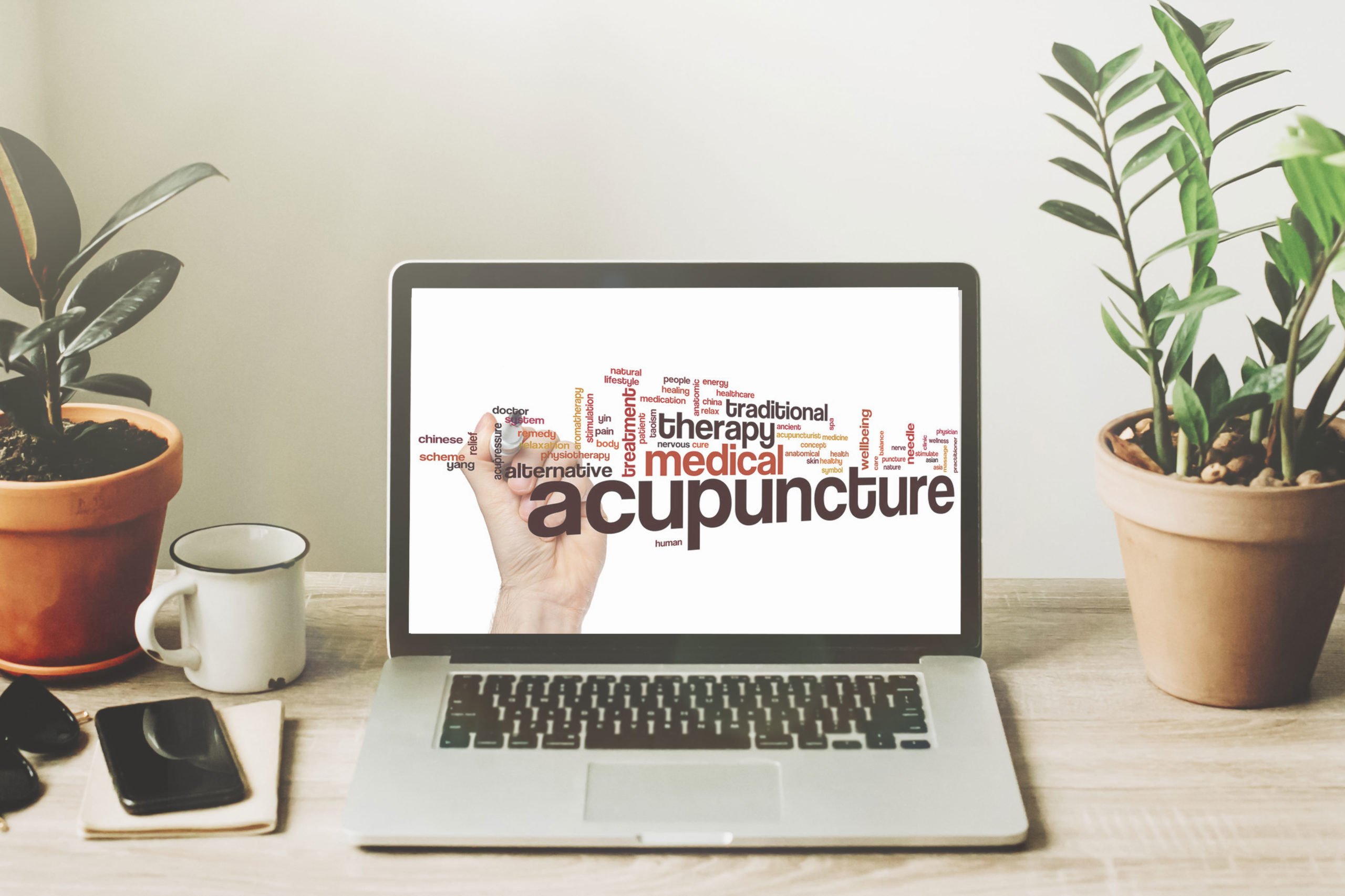 Are you ready for baby? In order to increase your chances of getting pregnant, it is important to create an inviting environment for an embryo to implant and develop. By being proactive you can greatly increase your chances- from acupuncture to, to exercise and just plain rest here are some of the best things you can do. For example, when trying to conceive, a woman’s body needs a host of plentiful vitamins and minerals. This will help prepare her body to carry a baby for nine months. Traditional Chinese Medicine has long since been utilized to help prepare for a healthy conception by employing both internal and external health habits. The ability to conceive is greatly influenced by our environment, what we eat, our sleep patterns and our stress levels.
Are you ready for baby? In order to increase your chances of getting pregnant, it is important to create an inviting environment for an embryo to implant and develop. By being proactive you can greatly increase your chances- from acupuncture to, to exercise and just plain rest here are some of the best things you can do. For example, when trying to conceive, a woman’s body needs a host of plentiful vitamins and minerals. This will help prepare her body to carry a baby for nine months. Traditional Chinese Medicine has long since been utilized to help prepare for a healthy conception by employing both internal and external health habits. The ability to conceive is greatly influenced by our environment, what we eat, our sleep patterns and our stress levels.
Fertility rates can be greatly affected by adjusting lifestyle patterns and dietary intake. Sadly, most of the staple “all American” foods can actually be inhibiting fertility rates. For example, the Chinese believe that the consumption of dairy products in particular milk can inhibit fertility. Several studies show a negative correlation between milk consumption and fertility. According to a 1994 study done at Harvard Medical School and cited in the American Journal of Epidemiology, in countries where milk consumption is highest, women experience the sharpest age-related drop off in fertility.
Traditional Chinese medicine also strongly advises individuals struggling with their fertility to avoid cold raw foods such as ice cream, salads, ice drinks, raw vegetables and foods straight out of the refrigerator. The cold properties of these foods deplete and weaken the digestive energy slowing down digestion and causing cold to enter the uterus. It is also recommended to consume fluids at room temperature, steam or grill vegetables, and avoid ice cream all together.
Having a healthy understanding of the fertility, menstruation, nutrition and stress relief techniques will all play vital roles in your Baby Quest.
A Healthy Menstrual Cycle
The female menstrual period represents a very physical external expression of female reproductive health. According to Chinese Medicine, obtaining a healthy menstruation is the primary key to fertility, whether attempting a natural conception or using ART (Artificial Reproduction Techniques including IVF and IUI). Just what is a “healthy menstruation”, you ask? An ideal cycle is regular; It usually occurs every 28 or 30 (a good range is anywhere from 25-35) days and lasts anywhere from 3 to 7 days; it contains little PMS; most blood is bright red; has no blood clots, and there is little to no pain. That being said, every woman’s menstruation is just a little bit different. Here are some other parts of menstruation
- Follicular phase– Days 1-12 (approximately) of your menstrual cycle before ovulation is called the follicular phase. During this time the follicles continue to mature and grow, and at the time of ovulation, the dominant follicle will release an egg. The follicular phase is considered the yin part of the cycle in Traditional Chinese Medicine. Or the “growing phase”. Foods that nourish Yin include: fruits such as raspberries, pineapples and grapes; vegetables such as asparagus and beans; adequate proteins, especially tofu and fish; and organ meats such as kidneys, brains and hearts. Avoid spicy, pungent foods. • Note cervical mucus or discharge. All women have cervical discharge throughout the month. The discharge is healthiest when it is clear to white, not any other color. The discharge that indicates fertility is called S-type and is that which begins approximately 6 days before ovulation with the rise of estrogen. This discharge will be clear, stretchy and have the consistency of raw egg white. A substantive discharge means increased fertility because it facilitates pathways for sperm to enter the uterus. This discharge is considered yin in nature. If you are lacking this type of cervical discharge, you might be yin deficient, take note of the Yin foods to increase above. There are also some medications that will dry up or interfere with cervical fluid which are antihistamines, atropine, N-SAIDS, and antidepressants.
- Ovulation is the release of the egg. This time varies generally between Days 12-15 of the menstrual cycle. Once released at ovulation, the egg lives for 6-12 hours. By contrast, the sperm lives for up to 5 days. Note: the prime time to start engaging in intercourse would be 4-5 days prior to ovulation, 48 hours being the optimal time
- Luteal phase is the phase after ovulation. This phase is more yang in nature. Many fertility quests can be sidelined by a “luteal phase defect” which can signal a progesterone deficiency. The following food and dietary changes will help strengthen this phase promoting a healthy and prolonged ovulation necessary for implantation. Foods that nourish Yang include warming foods: ginger; ginger tea; beans; grains; and vegetables such as mustard greens, winter squash, cabbage and kale. Avoid ice cold drinks, ice cream and foods that are very cold. In general, it is a good idea to avoid ice water and ice cream during pregnancy attempts.
- Menstruation: The start of the menstrual cycle is calculated from Day 1 with the commencement of the period, which is the first day of blood flow. Traditional Chinese Medicine says that you are most deficient and are more vulnerable. To avoid depletion while you are bleeding, it is best to keep your feet warm, don’t walk around the house barefoot, and don’t swim in cold water. While you are bleeding and right after, it is important to nourish, or build up, your blood. Foods that nourish blood include: fruits such as blackberries, raspberries and grapes; organic meats and poultry; soup stock made from the bones of the meat and poultry; and vegetables such as turnips, spinach and dark, leafy greens.
*Note: the addition of acupuncture treatments can greatly improve each of these phases naturally thus promoting increased fertility rates and conceptions. Please find a qualified practitioner with a 4 year degree in Acupuncture and Oriental Medicine, a Licensed Acupuncturist with a Fertility Specialty for the best outcome.
The perils of age
Delayed marriage and child birth are an unmistakable trend all over the world, particularly so in the United States. More and more couples are actively choosing to delay conception for many reasons: maturity, stability, and an established career path. In order to do this, many women will choose to take oral contraceptives (BCPs), and some even take them for decades.
Unlike men who produce fresh semen daily, women are born with all the eggs that they will need for their entire lifetime. Yikes. And, as women age so do their eggs. From late 30’s women’s fertility is in natural decline. For older women who have decided to have children later in life (generally considered over the age of 37), the combination of reproductive aging and the undesirable side effects of BCPs can have a severe and profound impact on fertility. If women are looking to give themselves the greatest opportunity of becoming pregnant it is advisable that they start trying sooner rather than later and either avoid using the BCP or cease it as soon as possible.
Diet
There is a Chinese medicine saying that goes, ‘a woman’s reproductive organs hangs off her digestion like a bell’. This statement an indication of the degree of importance placed on maintaining optimal digestive function when treating any gynecological condition at any age. For the fertility quest, it is advisable for both partners to follow an organic, wholefood diet, avoiding additives, preservatives and chemicals such as artificial sweeteners and avoiding meats that have been treated with hormones or fish that contains mercury. The most important thing to remember is that food is medicine, and it is important to eat as purely as possible. Take time to eat meals, relax and focus on which foods make you feel good.
Here is a more concise list of foods to eat to increase fertility:
- A diet high in calcium, magnesium, phosphorus, potassium, and vitamins B and E is recommended. These nutrients are easily depleted by stress
- Encourage the consumption of fruits and vegetables such as apricots, wintermelon, asparagus, kale, spinach, romaine lettuce, avocados, bananas and broccoli in addition to brown rice, dried fruit, figs, salmon, garlic, green leafy vegetables, non-synthetic soy products, and yogurt.
- Eat plenty of foods rich in anti-oxidants: tea (of the hot variety: black, green and white), blueberries, cherries, black plums, prunes, and apples, peppers, and parsley.
- Avoid caffeine (coffee, tea, sodas, chocolate). A Yale University School of Medicine study found that the risk of infertility was 55% higher for women drinking 1 cup of coffee per day, 100% higher for women drinking 1 and 1 – 3 cups, and 176% higher for those drinking more than 3 cups of coffee per day.
- Avoid alcohol, and sugar whenever possible
- Reduce exposure to environmental estrogens in foods
- Eat foods rich in B6 including; chicken, fish, liver, pork, egg, soy which can help balance key hormones in fertility
- Women need to eat food with essential fatty acids, e.g., soy products and wild caught salmon. Essential fatty acids are also found in non-hydrogenated cold pressed oils like flaxseed, winter vegetables, such as broccoli, cauliflower, and carrots, and all dark green vegetables.
- For men and women, foods that nourish their kidney essence include: chicken or duck and eggs from both; seeds and nuts; oysters; seaweed and algae.
Lifestyle Tips
Difficulties with fertility sends stress levels skyrocketing. Stress can cause chemical changes in the uterine and vaginal secretions which normally help sperm achieve fertilization. Therefore, finding ways to relieve stress becomes paramount. Some stress relievers include: meditation, yoga, relaxing with friends, massage, acupuncture, and any other calming activities that work for you are highly encouraged at this time. Other tips include:
- Get away from the daily routine to do something different and enjoyable to relieve stress whenever possible
- Regular exercise, adequate rest and normal sleep patterns are beneficial for stress reduction • Practice meditation exercises at least twice daily • Shift outlook on life and look at changes in a positive way and as challenges, rather than threats
- Avoid environmental hazards such as pesticides, lead, heavy metals, and radiation.
- Abstain from sex for short periods. Abstaining can increase the volume and potency of sperm, but abstaining for too long can leave too many older less motile sperm. Do not abstain for more than 3 to 6 days.
- Avoid certain medications such as anabolic steroids, some antibiotics (nitrofurans and macrolides), sulfasalazine (anti-diarrheal), and ketoconazole (anti-fungal), which are known to cause fertility issues
- Have sex every other day throughout your fertile period. While having sex at the right time is one of the MOST important things you can do, some couples overlook this. Reminder: a woman’s egg is viable for just under 24 hours. Most sperm live 2-3days, with some living up to 5 days. This means your fertile period begins approximately five days before ovulation and ends one day after.
- For men: skip saunas, hot tubs and tight clothes, all of which heat up sperm.
- For women: enjoy the foods noted above, exercise as a stress reliever and to maintain health but don’t overdo it. Excessive exercise depletes Yin (as noted above). Now is not the time to take up Cross Fit or to start training for a marathon. You are preparing your body for conception and a healthy place for your baby to live, not to become the next Iron Wo-Man.
Supplements and Support
Focusing on diet and lifestyle can make a difference for couples trying to conceive. Additionally there are some herbs and supplements that may very well aid fertility. Nutritional supplements can be used to help support the body’s reproductive health in many ways.
- High potency multivitamins and minerals for daily nutrients
- Vitamin C, a powerful anti-oxidant, 500-1,000 mg TID helps remove toxic metals that can interfere with pregnancy and is essential for healthy placenta
- Vitamin E, 400-800 IU daily may increase egg quality
- B6, 100-300 mg daily can help adjust progesterone and estrogen levels
- EFA capsules, 250mg 1-3 daily, can help the health of your reproductive system, insulin levels, heart and brain
- Iron, 10-15mg daily can benefit women who bleed profusely due to anemia
- Magnesium, 250-500 mg daily soothes the nervous system and reduces irritability
- Co-Q10, 30-100 mg daily may improve egg quality
- Folate or folic acid, 400-800 mg daily may prevent neural tube defects and other birth defects and protects the heart
- L-Arginine, 10g daily has shown to increase fertility in women who had previously failed in-vitro fertilization-IVF procedures
- Borage oil has been shown to be effective in regulating estrogen and progesterone
- Vitex agnus-castus, or chasteberry, 150-200 mg daily, helps ovaries to ovulate and normalizes progesterone levels
Final Words 
Having a baby can be the one of the most exciting times in a couple’s life. From conception to birth, pregnancy is usually a happy and joyful journey. For couples, struggles with infertility can be agonizing. Proper diet and nutrition can greatly aid the body in conceiving and carrying a healthy baby, and are beneficial in overall health.




About The Author: Julee Miller
More posts by Julee Miller